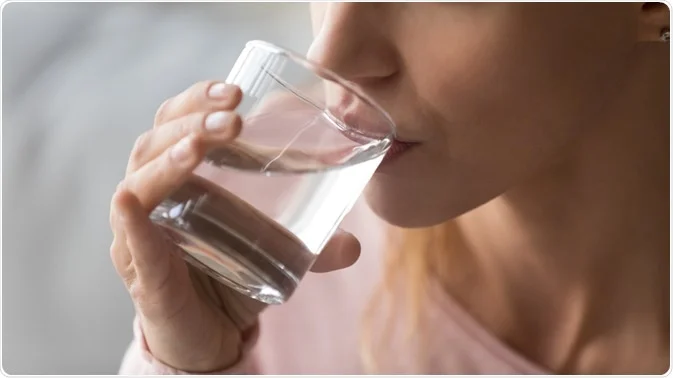
Is dehydration making you sick?
Why is drinking water so much important for our body? When feeling thirsty it’s already too late as the body is already in the early stages of dehydration. We are just like the plants which require water on regular basis. Our body is about 65-75% of regular plain water and blood is roughly 90% water. That is why we need water every single day. Researchers have found that we live mild to serious dehydration form throughout our lives. All animals and plants need water to survive as there can be no life on earth without water. Our bodies use water in all the cells, organs and tissues to help regulate body temperature and maintain other bodily functions. Our body loses water through breathing, sweating and digestion so it is crucial to rehydrate and replace water by drinking fluids and eating foods that contain water.
Dehydration occurs when the body loses more water than it takes in, and it does not have enough water and other fluids to carry out its normal functions. If you don’t replace the lost fluids in the body, you enter the dehydration stage. Everyone is prone to dehydration and it can occur in any age group but this condition is more severe in children and older adults because of which proper care needs to taken at these stages. The most common cause of dehydration in young children is severe diarrhea and vomiting. Older adults naturally have a lower volume of water in their body and being on medication further increases their risk of dehydration. Even a minor illnesses such as infections, can cause dehydration in older adults. Usually you can reverse the mild to moderate symptoms of dehydration by drinking more water but severe dehydration needs proper medical treatment.
Symptoms and signs of dehydration
There are some visible and invisible signs which generally go unnoticed by us. Feeling thirsty is not a reliable sign of dehydration because by that time your body is already in the dehydration stage. Symptoms such as dry mouth, feeling tired or lack of energy to do daily activities are some basic signals that our body gives us in dehydration mode. One of the best indicators of loss of water in the in the body is peeing less that 6-8 times in a day and if the urine is of low volume or more yellow in colour than usual, this may need check up. Even those dull headaches that you get used to after a while which don’t go away are the symptoms of dehydration. Some other signs and symptoms of a dehydrated body are dry skin, feeling dizzy and low skin elasticity. Without adequate amount of water the above symptoms can easily turn into severe dehydration leading to confusion and eventually coma and death.
Serious complications caused by dehydration
Dehydration can also lead to serious complications such as heat injury when you are exercising vigorously. It may cause mild heat cramps which can prove fatal for life. Prolonged or repeated states of dehydration in the body can cause urinary tract infections, kidney stones and even lead to kidney failure. The loss of electrolytes such as potassium and sodium due to dehydration can cause involuntary muscle contractions and sometimes loss of consciousness. In the worst life threatening cases, dehydration can cause low blood pressure which can drop the amount of oxygen in the body.
What happens when you’re properly hydrated?
Water plays an important role in weight loss and weight maintenance. To reduce the cravings for food it is important to keep the body hydrated. Often we think we are hungry, when actually all we need is a big glass of water. Water is not just zero calories, but also an essential element in increasing our energy levels and metabolism. Water plays a very important role in properly moistening the lungs. When dehydrated, your body will restrict the width of your airways to conserve water loss which is dangerous for the body.
Prevention is better than cure
To prevent dehydration, drink plenty of fluids and eat food high in water such as fruits and vegetables. When you are exercising rigorously, try to replenish the body with electrolytes and regular intervals. You also need to drink additional water in hot and humid weather to help lower your body temperature and to replace what you lose through sweating. Don’t forget that even during the winter season, body needs good amount of water particularly at higher altitudes. At the slightest sign of dehydration consult your doctor immediately.
Your email address will not be published. Required fields are marked *
29 Jan, 2024
29 Jan, 2024
29 Jan, 2024
25 Jan, 2024